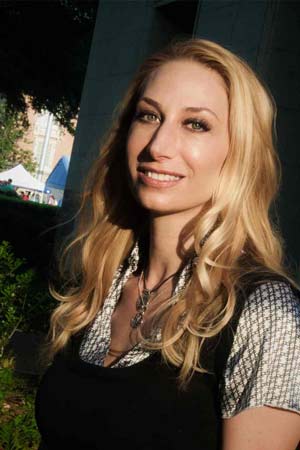|
|
Melissa Studdard is the author of the bestselling novel Six Weeks to Yehidah and the newly released My Yehidah (a companion journal that nurtures emotional intelligence, creativity, and authenticity). Since its August 2011 release, Six Weeks to Yehidah has been the recipient of many accolades, including the Forward National Literature Award and January Magazine's best children's books of 2011. She is also, with Scott Lutz, co-author of For the Love of All, which is the fifth story in the Mark Miller’s One series. Her poetry, fiction, essays, reviews, and articles have appeared in numerous journals and anthologies, including Boulevard, Connecticut Review, Pleiades, Gradiva, American Book Review, Poets and Writers, and The Smoking Poet. She currently serves as a Reviewer-at-Large for The National Poetry Review, an editorial advisor for Lapis Lazuli Journal of The Harold Pinter Society of India, and a contributing editor for both The Criterion and Tiferet. As well, she is the host of Tiferet’s radio interview program, Tiferet Talk, which interviews writers and spiritual and religious leaders. A collection of these interviews, The Tiferet Talk Interviews, will be released by Tiferet Press this spring. Studdard is a professor at a community college in Texas. |
|
Om He sent us flowers without a card, *Published in Tiferet Journal, Re-Published in Red Fez, Featured at St. Julian Press WEB site, forthcoming in the Hip Poetry 2012 Anthology
Looking at A Young Woman with a Water Jug Can you see the way Vermeer how the instant No more as if friction I imagine our human minds like some swart alchemy *Published in Connecticut Review
Nirvana --inspired by the Remedios Varo painting There’s no mother’s milk
|
|
|
© 2012 Melissa Studdard |
|
